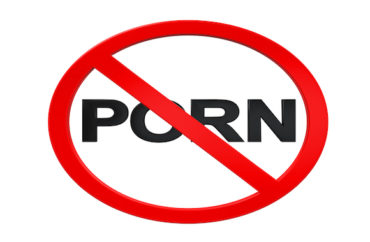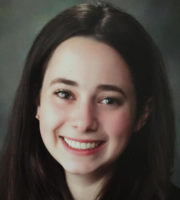
‘I knew we could do this’
The Catholic University of America, one of the country’s most prominent Catholic institutions of higher learning, recently moved to ban pornography from the school’s Internet wireless network. They did so because a determined group of students petitioned the school for the ban.
The school’s student government kickstarted the university into action earlier this spring by passing a resolution calling on the school to “prohibit access to the top 200 pornography websites through the campus network.”
Joseph Enzler, a senior international business major and Italian studies minor at the school, originally came up with the idea to block pornography on campus after he read a news article about how the University of Notre Dame did not ban pornography on its network. Upon investigating, Enzler was surprised to hear that porn was not blocked on Catholic University’s network, either.
Enzler started researching systems to block pornography and contacting different Catholic universities to find out the programs they used, if any. “I knew we could do this,” he told The College Fix in a phone interview.
Enzler met first with the executive director of housing services, who told him that a ban had been attempted before without success.
Later, Enzler ran into the university’s president, John Garvey, at a lunch event. He spoke to Garvey about his idea and Garvey expressed his support for the initiative. Enzler then spoke to the president’s chief of staff, Lawrence Morris, who also supported the idea and instructed him to approach other students about getting it implenented.
Enzler started a petition calling for the porn ban. It ended up garnering around 400 signatures from students. He subsequently reached out to Gerard McNair-Lewis, a senator on the student government. McNair-Lewis eventually drafted the resolution and proposed it to the student government in early April of this year.
President of university is ‘happy to [block pornography]’
Enzler said the meeting was two or three hours long and the vote came down to a tie. The vice president of the student government broke the tie voting in favor of the resolution.
The administration responded positively to the resolution. Campus spokeswoman Karna Lozoya told The Fix: “Our students asked President Garvey to block the top 200 porn sites, and he told them that he’d be happy to do so.”
Enzler said the larger response to the resolution has also been positive and that the issue has impelled a good discussion on campus. He stressed the need to spread awareness about pornography’s potential harmful side-effects.
Lozoya said the ban should go into effect soon. “We are working on implementing those blocks, and should have the top sites blocked within weeks,” she said.
The ban on porn is not comprehensive. The university is using an internal contractor to block only the 200 most popular pornographic websites on the Internet, according to Lozoya.
Lozoya said that the school may pursue further options after the ban is put into place. “After we implement the students’ initial proposal, we can revisit the plan and reevaluate what additional steps we might want to take at a future date,” she said.
McNair-Lewis told The Fix that the activists’ efforts will not stop with the ban itself. “We will continue to advocate against pornography websites,” he said.
Asked what advice Enzler would give to other college students trying to ban pornography on their campus, he said: “Go as high up the ladder as you can, don’t get discouraged, and gather support.”
“Take the little victories,” he added.
MORE: Notre Dame student group takes on porn problem
MORE: Arizona State University restores students’ porn access
IMAGE: Nerthuz / Shutterstock.com
Like The College Fix on Facebook / Follow us on Twitter





Please join the conversation about our stories on Facebook, Twitter, Instagram, Reddit, MeWe, Rumble, Gab, Minds and Gettr.